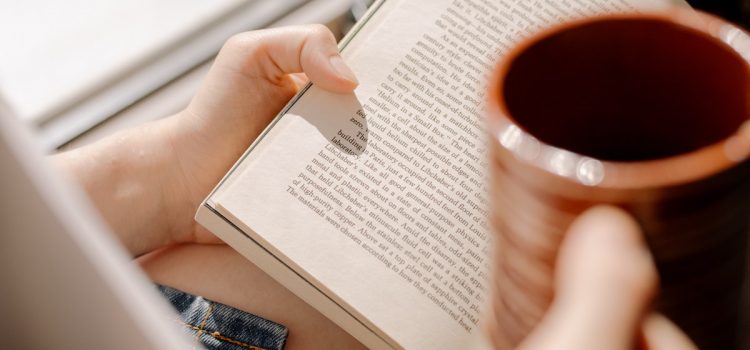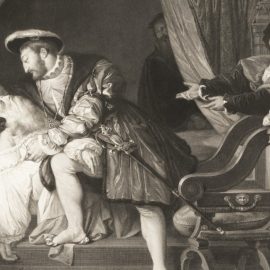

This article is an excerpt from the Shortform book guide to "Unreasonable Hospitality" by Will Guidara. Shortform has the world's best summaries and analyses of books you should be reading.
Like this article? Sign up for a free trial here.
What’s Unreasonable Hospitality by Will Guidara about? How did he manage to create the World’s Best Restaurant for 2017?
Unreasonable Hospitality traces Will Guidara’s career and the lessons he learned from each stage. His journey begins as the general manager of Eleven Madison Park and culminates in making it the world’s best restaurant.
Read below for our Unreasonable Hospitality book overview.
Unreasonable Hospitality by Will Guidara
In his Unreasonable Hospitality book, hospitality guru Will Guidara details how he transformed Eleven Madison Park from a so-so brasserie in the middle of Manhattan into the World’s Best Restaurant in 2017. Guidara contends that the secret to the restaurant’s success was his commitment to providing “unreasonable hospitality”—a level of dedication to providing guests with a fantastic experience that stretched the limits of what seemed sensible. Guidara believes that anyone with a service-based business should also commit to providing unreasonable hospitality—both to their employees and their customers.
Guidara first joined Eleven Madison Park in 2006, when the restaurant’s then-owner tapped Guidara and chef Daniel Humm to transform the restaurant into a fine-dining establishment. Guidara and Humm succeeded beyond their wildest dreams, garnering widespread acclaim and buying out the restaurant in 2011 to create their own company, Make It Nice. This company developed several other restaurants before Guidara left to pursue his own ventures in 2019—including running Thank You, a hospitality agency, and writing Unreasonable Hospitality, which was published in 2022.
Guidara’s Journey to Eleven Madison Park
Guidara’s interest in restaurants was influenced by his father, who worked in the industry. This interest was bolstered by a fantastic experience in a restaurant on Guidara’s 12th birthday. He graduated from the restaurant management program at Cornell University’s School of Hotel Administration and spent years working at several restaurants before accepting the position at EMP. In this section, we’ll discuss the lessons Guidara learned from these experiences.
Lesson 1: Hospitality Matters
Thanks to a class he was taking at Cornell, Guidara made a connection with famed chef Daniel Boulud and even spent an evening partying with him and his team. This connection proved to be a great relief just a few months later when, soon after Guidara’s college graduation, his mother passed away. Shortly afterward, Guidara and his father happened to be in New York City—so Guidara emailed Boulud to ask if they could eat dinner at Boulud’s restaurant. Boulud gave them the most exclusive table available, served them a superb meal, and didn’t charge them a cent.
Although Guidara knew from a young age that he wanted to work in restaurants, this meal at Boulud’s restaurant taught him the true power of hospitality. His 12th birthday dinner taught him that hospitality can enthrall you on your best days. His meal with his father at Boulud’s restaurant during their season of grief showed him that great hospitality can also enchant you and provide comfort when you most need it.
Lesson 2: Find the Balance of Control
After graduating from Cornell, Guidara began working as a manager at a restaurant owned by Danny Meyer’s Union Square Hospitality Group (USHG). Guidara quickly fell in love with the restaurant group’s “restaurant-smart” culture, which prioritized teamwork and cultivating trust in both the kitchen and the floor staff to do their jobs well.
However, Guidara’s father warned him that he needed to work somewhere with a “corporate-smart” culture—a more business-like attitude to running restaurants that favored more controlled, corporate systems over on-the-ground staff autonomy. So Guidara joined RA, his father’s old company, first as their assistant purchaser and controller and then as assistant general manager and controller of Nick + Stef’s Steakhouse in Madison Square Garden.
Guidara’s time working at RA taught him that it’s essential to have some but not too much control over your employees. Sometimes, control can help your employees. For example, when RA noticed that the increased price of lobster was negatively affecting a restaurant’s profits, the controller banned their chefs from using the ingredient. The controller’s focus on the restaurant’s bottom line freed the chef to focus on serving great food without having to worry about serving a financially viable lobster dish.
That said, too much control can harm your employees. While working at Nick + Stef’s, Guidara fired a server who regularly disrupted the dinner service due to his unprofessional behavior. While USHG would have trusted Guidara’s decision, RA’s head office rehired the server, explaining to Guidara that this server made the company a lot of money because his customers loved him. Guidara was furious; he believed that the server’s profit potential didn’t outweigh the damage that he did to the rest of the dining team—damage that the head office couldn’t see because they weren’t in the dining room every evening.
Lesson 3: Spend Wisely
Guidara eventually left RA when a chance encounter with Meyer led to a job as general manager for Meyer’s new casual-dining spaces at the MoMA. This gave him the opportunity to combine the lessons he’d learned at RA with Meyer’s vision.
One way Guidara did so was by developing “The Rule of 95/5:” Cut costs as much as possible on 95% of your budget, but spend the last 5% extravagantly—as these extravagant touches will be the most memorable and will keep your guests coming back for more. Guidara created this rule when he added an ice cream cart to the museum’s sculpture garden and invested in expensive but artistic spoons. The memorable spoons drew praise from the guests, and the cart remained profitable despite the expense because Guidara had cut costs elsewhere.
Lesson 4: Be Flexible
Guidara loved working at the MoMA. His passion attracted the attention of Daniel Humm, who Meyer had recently hired as EMP’s executive chef after the restaurant received a disappointing two-star review from The New York Times. Humm suggested to Meyer that Guidara could help Meyer achieve his vision of turning EMP into the fine-dining jewel that Meyer envisioned.
Guidara initially hesitated to become EMP’s general manager. He’d never wanted to work in a fine-dining restaurant because he didn’t want to work in an establishment that prioritized the chef’s vision above all else. However, he agreed to speak with Humm—and after discovering that Humm also wanted to run a restaurant that equalized both the kitchen and the floor staff, Guidara agreed to try the job out for a year. This decision sparked a partnership that would lead to great success for both men—a partnership that would never have happened without Guidara’s willingness to be flexible and join EMP despite his earlier hesitation.
How Guidara Turned EMP Into a Three-Star Restaurant
Guidara joined EMP in 2006 to help Meyer transform the casual brasserie into a three-star fine-dining restaurant worthy of its spectacular location—and by 2007, Guidara achieved that goal. In this section, we’ll detail what Guidara did to transform EMP into a well-regarded three-star restaurant.
Lesson 1: Clarify and Communicate Your Priorities
When Guidara joined EMP, the restaurant was suffering from poor relationships and erratic levels of service. In an effort to transform the brasserie into a three-star restaurant, Meyer had brought on several service professionals who’d trained in fine-dining restaurants and so brought with them a set of expectations regarding how a fine-dining restaurant is run. The original EMP staff bristled at these expectations, which were both new and confusing given that different managers had different standards for the same thing. For example, one server was made to hold a tray in two different ways by two different managers.
After spending some time learning how EMP ran things and why it wasn’t working, Guidara’s focus turned to clarifying and communicating the restaurant’s priorities. Guidara started by having a daily 30-minute meeting shortly before the restaurant opened. This meeting served two important purposes: First, it made clear to the staff what they needed to know—since Guidara required the managers to share typewritten handouts that he’d pre-approved. Second, it gave Guidara a regular opportunity to reinforce the culture he was trying to build; Guidara regularly praised employees’ successes and shared stories to inspire a good night’s work.
Then, several months into his tenure, Guidara invited all the staff to a “strategic planning meeting.” He wanted the entire team to have a voice in deciding what type of restaurant they wanted to build. After some discussion, the team landed on the pillars that would define their culture—notably, excellence and hospitality. Guidara contends that these two concepts are somewhat contradictory, given that excellence involves meeting an exacting standard while hospitality involves connecting with the guest—sometimes to the detriment of that exacting standard. But acknowledging that both were important gave them the tools to provide the best experience possible for their guests.
Lesson 2: Help Your Employees Succeed
Guidara knew that EMP would succeed only if they invested in the team. He assumed that most employees had something valuable to offer the restaurant, so he focused on ensuring that each employee’s position made the best use of their particular skills. For example, Guidara noticed that one poorly performing employee had excellent organizational skills, so rather than fire the employee, he reassigned him to a position that made use of those skills.
Guidara saw and took advantage of an opportunity that would both set EMP apart and support his employees. He set up “ownership programs,” which involved giving employees full control over specific aspects of the restaurant. For example, he put the server who loved beer in charge of developing EMP’s beer program. The programs benefited everybody involved. The staff liked taking on more responsibility, Guidara’s workload was reduced, the customers enjoyed the results (like the better beer that EMP served), and the customers’ happiness reflected well on the restaurant.
Lesson 3: Pay Attention to the Details
In 2006, the food critic for The New York Times appeared at the restaurant for lunch. His presence signified that Times might soon review EMP. The restaurant’s three-star review appeared in the Times nearly a year later.
Guidara attributes the three stars to EMP’s continued commitment to the details, which EMP staff demonstrated in two ways.
First, EMP staff focused on consistently mastering the smallest details. These details didn’t seem individually important, but altogether they contributed to providing an overall atmosphere of exceptional service. Guidara contends that this atmosphere was palpable not just to the guests but also to the staff and improved everybody’s experience. For example, the staff carefully curated how loudly they played the music depending on how many people were in the restaurant.
Guidara argues that seeing this consistency helped servers when they were having a difficult time due to uncontrollable circumstances—such as guests in a bad mood—as it reminded them that there were some things they still could control.
Second, EMP staff followed the “one-inch rule” that Guidara developed. Guidara points out that no matter how well you prepare something, you can mess it up at the last minute. At EMP, the staff learned to remain focused during that last “one inch” so they could execute everything perfectly instead of ruining something due to inattention in the final moments.
How Guidara Turned EMP Into a Four-Star Restaurant
Guidara wasn’t content with turning EMP into a three-star restaurant. He, along with Humm, had a larger mission: They wanted to transform the fine-dining landscape into something more modern and inclusive. To do that, they needed to become a four-star restaurant, as this was the barrier to entry: Four-star restaurants are fine-dining restaurants, but three-star restaurants are not. Humm and Guidara achieved that dream in 2009, but they faced several challenges along the way. In this section, we’ll describe the lessons Guidara extracts from overcoming those challenges.
Lesson 1: Re-evaluate Your Policies
Some of Guidara’s successes at EMP stemmed from his willingness to push back against long-standing policies. For example, all of Meyer’s restaurants closed on Thanksgiving to allow employees to spend time with their families. But in 2007, Guidara proposed that they open on the holiday, pointing out that most of EMP’s employees’ families lived far away, so they couldn’t spend the holiday with them anyway. Meyer agreed—and so EMP opened on Thanksgiving Day. Not only did Thanksgiving become a popular day at EMP, but the profits also allowed the restaurant to close for a few days in January so employees could go home to visit their families.
Lesson 2: Take Care of Your People
Keeping EMP open on Thanksgiving Day didn’t just make the restaurant more money; Guidara used it as an opportunity to create a new tradition that brought the team together by serving the staff a traditional Thanksgiving meal after the restaurant closed. By doing so, Guidara created a space where the staff could connect on a deeper level with each other—and so become a stronger team.
In addition to creating traditions, Guidara took care of and brought together his team in two more notable ways. First, he systematized asking for help. At EMP, a server who was struggling could touch her lapel and immediately receive assistance from somebody who noticed this distress call. Guidara contends that introducing this code made it easier to ask for help—and so made it more likely that the employees who needed help would actually ask for it, which reduced overwhelm and potential burnout.
Second, he learned how to convey criticism. Guidara argues that criticism is a necessary part of managing people, as it demonstrates that you care about how well they do. But not all criticism is created equal. People receive criticism in different ways; some people need to be yelled at, some need a rational explanation, and some need a gentle rebuke. As a manager, it’s up to you to personalize how you deliver criticism in the way that your team member is most amenable to it.
Lesson 3: Highlight Your People
In 2008, EMP decided to apply to join Relais & Châteaux, a prestigious restaurant organization, but the restaurant missed the application deadline. Boulud offered to ask the group to consider EMP anyway, and he brought in two rock star chefs—Thomas Keller and Patrick O’Connell—so that all three could ask together. Guidara noticed how awestruck his team was at these chefs’ presence and realized how much this validation boosted their morale. (The chefs loved the restaurant, and EMP was accepted into Relais & Châteaux).
As a result, Guidara started to share external praise of his team members with the team member in question. This included having media personalities speak with the most relevant team members—even if that wasn’t Guidara. These actions helped his team members gain recognition and further supported their growth.
Lesson 4: Find the Silver Lining
In November 2008, the world plunged into a financial crisis—and took EMP along with it. Due to the shaky economy, EMP’s usual customers cut back on expensive meals. The restaurant survived only because EMP owned Shake Shack, a casual fast-food USHG restaurant that exploded in popularity because it was now a cheaper option in the area.
However, Guidara learned to find the silver lining in these financially challenging times. For example, EMP started a $29 lunch special. This allowed young people who couldn’t previously afford EMP to eat at the restaurant—and in later years, many of these people became more financially successful and continued patronizing the restaurant.
How Guidara Turned EMP Into the World’s Best Restaurant
In 2010—one year after EMP earned its fourth star—the restaurant was nominated for the World’s 50 Best Restaurants list. Guidara and Humm were initially thrilled…but then mortified at the awards ceremony when they discovered that they had only received 50th place. This embarrassment prompted Guidara to commit to making EMP the world’s best restaurant by cultivating a culture of “unreasonable hospitality”—a commitment that ultimately led to EMP winning World’s Best Restaurant in 2017.
In this section, we’ll share how Guidara and Humm successfully transformed EMP into the world’s best restaurant and the lessons they learned along the way.
Lesson 1: Get Creative
As we learned previously, Guidara defines “unreasonable hospitality” as a level of dedication to providing guests with a fantastic experience that stretches the limits of what seems sensible. However, Guidara saw an inherent tension between this concept and running a food business. After all, as a customer, you purchase the experience at restaurants—but the act of purchasing detracts from the hospitality of this experience by highlighting that you’re exchanging money for a service rather than making a connection.
As a result, Guidara decided to hide everything that felt too businesslike and detracted from the experience of hospitality. This required him to get creative in unexpected areas. For example, the most businesslike element of a meal at the restaurant is when you pay for it. To make that a hospitable experience, Guidara decided that when each table received a check, they’d also receive a full bottle of nice cognac and instructions to have as much as they liked. As a result, even receiving the check felt like a nice gesture because it was combined with a gift.
Lesson 2: Systematize Gifts
As Guidara was looking for ways to provide unreasonable hospitality, he overheard a table of tourists who’d chosen EMP for their last meal in New York. The group mentioned that they’d eaten everything they’d wanted to eat—except for a classic New York hot dog. So Guidara ran out to purchase some, had Humm plate them, and served these hot dogs to the guests as one of their courses, explaining to them that he’d overheard their conversation and wanted to provide them with the best possible experience. The delight of the guests convinced Gudiara that this was something he should be doing regularly—and so Guidara systematized such gifts in two ways.
First, he created a position dedicated to providing unexpected gifts. Guidara understood that, while a meal at a restaurant is by definition consumed, the guests could relive their restaurant experience as long as they had a great story to tell. As a result, he started hiring “Dreamweavers”—people whose job it was to research the guests beforehand or listen during their meals and provide personalized touches to awe the guests and give them a great story. For example, the Dreamweavers turned the private dining room into a makeshift beach for a couple who unexpectedly couldn’t make their planned beach vacation.
Second, Guidara created standard gifts for repeatable moments. The personal nature of the Dreamweavers’ gifts sometimes meant that they were expensive, but Guidara found a more budget-minded way to systematize gifts. He looked for repeatable moments—the memorable things that happened regularly at the restaurant—and created standard gifts for those moments. For example, many couples got engaged at EMP. So Guidara partnered with Tiffany to create custom champagne flutes; he’d pour them a champagne toast in the flutes at EMP and gift them the flutes in Tiffany boxes.
Lesson 3: Educate Your Employees
In 2010, Guidara and Humm received an offer to run The NoMad, a restaurant in a new luxury hotel opening a few streets away from EMP. Guidara and Humm were thrilled at the opportunity to bring fine dining back to hotels, whose restaurants had depreciated in quality over the years. However, Meyer couldn’t justify allowing the pair to run EMP while also owning a competing restaurant nearby—and offered to sell EMP to them instead. Guidara and Humm agreed to the sale and by 2012, they were running both The NoMad and EMP under the umbrella of their new company, Make It Nice.
The NoMad received three stars in its first New York Times review—a feat Guidara attributes largely to how successfully the employees quickly embodied the team’s culture of unreasonable hospitality. To achieve this, Guidara prioritized educating the new employees. He spent a lot of time training the staff—both by providing booklets on the culture and bringing in mostly long-time EMP employees to manage The NoMad—so that they could embody Make It Nice’s culture effectively from the first day the restaurant was open.
Lesson 4: Acknowledge Your Failings
Despite The NoMad’s success, it wasn’t all smooth sailing back at EMP. While opening The NoMad, Guidara remained general manager of EMP because he didn’t think anybody else was prepared for the job. But the EMP team struggled to move forward without a clear supervisor to make the final call on important decisions. Guidara finally agreed to promote a longtime employee to GM after a tough conversation with a friend and colleague led him to realize that his decision not to promote anyone was doing the EMP team a disservice.
EMP also faced a blow after receiving terrible press in September 2012. The Times published an unflattering column after the restaurant introduced a new tasting menu, which the servers delivered with a memorized speech about each dish. (Fortunately, the column wasn’t an official review that would have done far more damage to the business.)
Guidara learned from both these incidents to acknowledge his failings so that he could work around them. Both his refusal to promote anyone to GM of EMP and his demand that the servers memorize a speech to share with guests demonstrated a lack of trust in his employees: He didn’t trust anybody to run EMP, and he didn’t trust his servers to judge how much information individual customers wanted to learn about each dish. So Guidara learned that he was too much of a perfectionist and needed to let go and give his team the control they needed to do their jobs well.
Lesson 5: Keep Evolving
By 2015, EMP was thriving. After taking the criticism they’d received in 2012 to heart, the restaurant’s popularity had exploded and it rose in the World’s Best Restaurant ranking every year. So Guidara was disappointed when their ranking slid for the first time—going from fourth to fifth place. This disappointment prompted Guidara to re-evaluate the restaurant. After he and Humm shared a meal at EMP, they realized the problem. In their chase to become the world’s best restaurant, they’d added on so many elements that they were disrupting the diners’ ability to enjoy their meal.
So EMP evolved again. But this time, instead of adding elements, Guidara removed them, keeping only those that embodied the culture of unreasonable hospitality to its fullest. For example, they realized that serving a pre-set menu and not allowing the guest to decide what they wanted to eat wasn’t a hospitable practice. So instead, they served a meal based on a pre-meal conversation with the guest where she explained what she was and wasn’t in the mood for. These changes allowed Guidara to finally provide the fantastic experience he’d been aiming for—and in 2017, his efforts were rewarded when EMP was voted the World’s’ Best Restaurant.

———End of Preview———
Like what you just read? Read the rest of the world's best book summary and analysis of Will Guidara's "Unreasonable Hospitality" at Shortform.
Here's what you'll find in our full Unreasonable Hospitality summary:
- How Will Guidara turned Eleven Madison Park into the World's Best Restaurant
- Why service-based businesses should go above and beyond for customers
- Guidara's lessons he learned from each stage of his business journey






